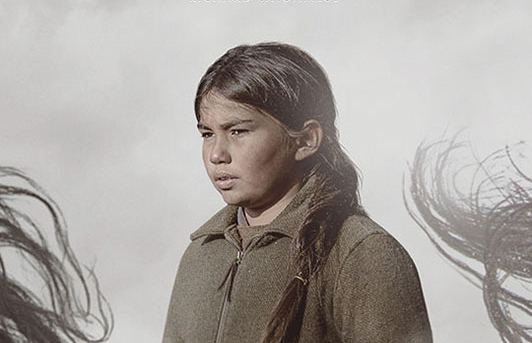The 2017 film Indian Horse was showcased as part of St. Thomas University’s Indigenous film series, organized by the Senate Committee on Reconciliation.
The film Indian Horse, directed by Stephen Campanelli and co-produced by Clint Eastwood, is based on Richard Wagamese’s acclaimed novel of the same title, published in 2012.
The novel won the Molson Prize and the Burt Award for First Nations, Métis and Inuit Literature in 2013. Wagamese himself is Ojibway and his novel’s fame has garnered a lot of attention for Indigenous issues.
The adoption of Wagamese’s novel follows Ojibway Saul Indian Horse as his endurance and will is tried under the cruelty of the residential school system and racism during 1950s Ontario.
The plot begins with eight-year-old Saul being taken from his family and restricted from his culture and language, with the aim of assimilating him into Euro-Canadian culture.
Over 150,000 First Nations, Métis and Inuit students similarly suffered in Canada’s residential school system. The government-sponsored religious schools were running from as early as 1880, with the last school being closed in 1996.
Since that time, the Truth and Reconciliation Commission has seen 37,951 claims made for injuries resulting from physical and sexual abuse in residential schools and 3,200 documented deaths of Indigenous children. The number of undocumented and actual deaths is considered to be much higher.

Indian Horse is dedicated to the survivors of residential schools and their families, and the audience witnessed tragedies with Saul as he ages and eventually leaves the system. Catholicism and cultural genocide are major aspects of the film, and the terror felt everyday by Indigenous students at their “boarding school” is palpable for the audience.
Saul Indian Horse discovers he’s a skilled hockey player and excels in this intrinsically “Canadian” pastime. Saul faces racism and prejudice on and off the ice as white Canadians harass him for trying to play “their” game.
Intergenerational trauma was a major theme of the film, as Saul is a second-generation residential school survivor and experiences the effects of ongoing systemic oppression. Indian Horse further explores the racist myth that Indigenous people have brought their plight upon themselves, demonstrating how decades of suffering and the absence of support systems can cause individuals to rely on unhealthy coping mechanisms such as alcohol.
A discussion was scheduled to occur after the screening, but the emotional nature of the film left nothing but silence in the auditorium. Trenton Augustine, STU’s Aboriginal student services coordinator from Metepenagiag First Nation, fielded questions from the audience but received no response. He instead shared his own experiences with intergenerational trauma.
“My grandfather went [to residential school] and it really affected him. It affected my father, and it affects me to this day,” Augustine said.




